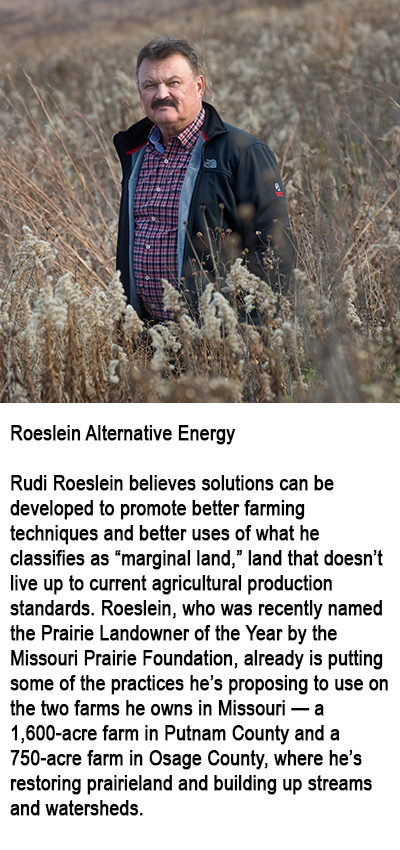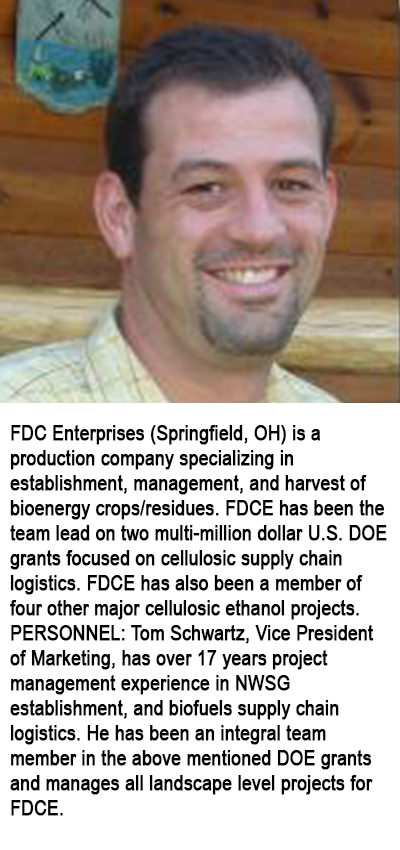The Challenge
Protection of natural resources and biological diversity is a fundamental goal of the conservation community and governments worldwide. Nevertheless, rising human populations are creating increased demands on our planet’s natural resources. Intensive production methods of conventional agriculture are a vital part of meeting demands for food, feed, fiber and fuel; however, many of these methods have negative impacts on natural resources and ecosystem health. These impacts have ranged from local loss of species and habitat to regional loss of entire native ecosystems. Furthermore, there is growing concern regarding future water quality and quantity where intensive agriculture is greatest.
A Solution: The Midwest Conservation Biomass Alliance
The Midwest Conservation Biomass Alliance is a cross-sector public-private partnership of researchers, natural resource professionals, land managers, business interests and landowners Partners come from academia, government, nonprofit organizations, industry, agriculture and communities and promote local, regional and global sustainability through collaboration, research, education, demonstration and commerce utilizing economic and ecological benefits derived from native grasslands.
Common Goals
- Assess the economic and ecological benefits of native grassland biomass in comparison to other biomass production systems.
- Develop and validate commercially and ecologically viable native grassland biomass production and business models at local and regional levels.
- Facilitate development of technologies that use native grassland vegetation as biomass for energy production and other bio-products, promoting innovation, experimentation and proof-of-concept activities.
- Develop and validate native grassland biomass best management practices (BMPs) for conservation lands and working production lands.
- Communicate to landowners, communities, agriculture interests and industry native grassland biomass benefits, production and business models, technologies and BMPs through demonstration, white papers and other forms of media.
- Advocate programs that recognize values, benefits and services derived from native grassland vegetation.
- Make natural resource conservation part of bioenergy production and in turn make bioenergy production a viable tool for natural resource management.
- Engage global partners who are also working toward planetary sustainability.
- Establish 30 million acres of native grassland vegetation in the Midwest in the next 30 years, followed by additional gains thereafter.

MCBA Coordinator
Carol L. Williams, is a Research Scientist for University of Missouri’s Center for Agroforestry. She specializes in grassland bioenergy research, outreach and education. She is an experienced leader in coordinating projects and events involving diverse stakeholders and crossing traditional scholarly disciplines in the quest for greater agricultural and natural resource sustainability.


